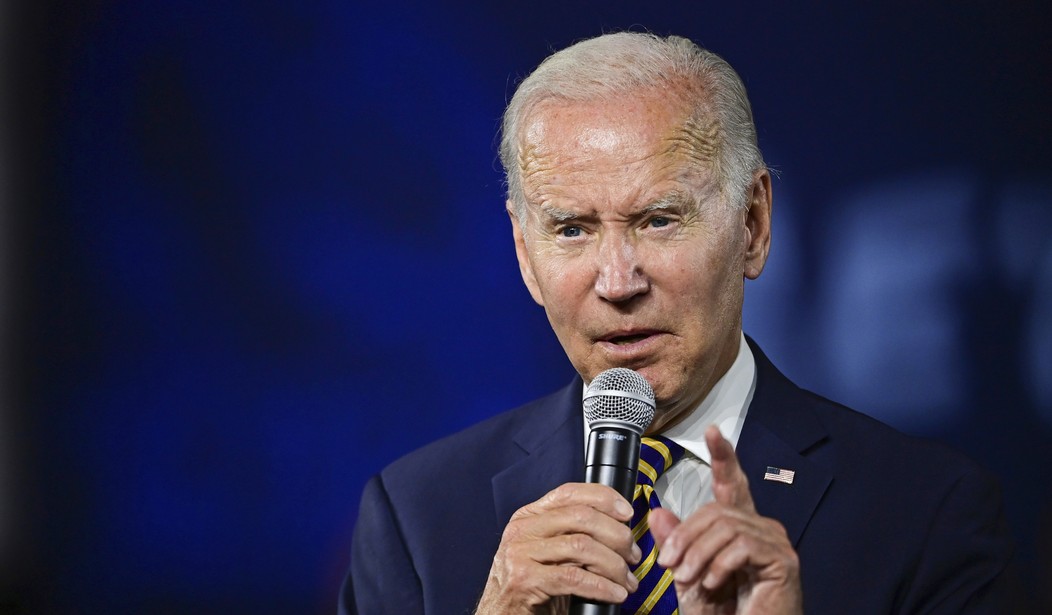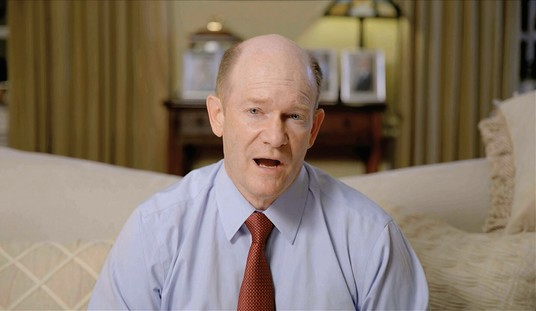If you're a Democratic elected official, you know you have problems when the New York Times begins to question your future. This happened Monday when the Gray Lady published an article by Shane Goldmacher titled "Most Democrats Don't Want Biden in 2024, New Poll Shows."
"With the country gripped by a pervasive sense of pessimism, the president is hemorrhaging support," the subtitle read.
Goldmacher wrote, "President Biden is facing an alarming level of doubt from inside his own party, with 64 percent of Democratic voters saying they would prefer a new standard-bearer in the 2024 presidential campaign, according to a New York Times/Siena College poll, as voters nationwide have soured on his leadership, giving him a meager 33 percent job-approval rating."
President Joe Biden could not have been happy with the title or with the content, but the article -- and the questions it raises -- must be leading other Democrats to think through their party's options less than four months before midterms and a little over two years before the presidential election. Keep in mind their goal is to win.
While many Republicans had soured on Biden even before he took office, we are now finding, almost two years into his term, that most Democrats have joined us.
"Widespread concerns about the economy and inflation have helped turn the national mood decidedly dark, both on Mr. Biden and the trajectory of the nation," Goldmacher continued. "More than three-quarters of registered voters see the United States moving in the wrong direction, a pervasive sense of pessimism that spans every corner of the country, every age range and racial group, cities, suburbs and rural areas, as well as both political parties."
Recommended
The release this week of the Bureau of Labor Statistics Consumer Price Index report won't improve the national mood. The 12-month inflation rate is 9.1%, the highest in decades, with food rising 10% and energy 41%. The lowest category of inflation is apparel, which clocked in at 5%. This is not that helpful because most people don't have any money to spend on apparel after paying more than normal for food and gas. Clearly, our country is in a crisis, which most voters blame on Biden. Many are ready to hitch their wagon to a new leader.
Goldmacher wrote, "Mr. Biden has said repeatedly that he intends to run for re-election in 2024. At 79, he is already the oldest president in American history, and concerns about his age ranked at the top of the list for Democratic voters who want the party to find an alternative." With his poor policy, fumbling speeches and ailing economy, Biden is a poor standard bearer for the Democrats in the midterm elections, and many Republicans are painting their Democratic opponents as facilitators of Biden.
What could change all this? We can run "what if" scenarios about how changes on the political chessboard could make a difference -- first in the midterms and then in the presidential election. If Biden were to resign, say, due to health reasons or for family matters (most people would accept any excuse), Vice President Kamala Harris would become president. Harris, who could not get enough votes to be a real competitor in the Democratic presidential primary, might also be at a disadvantage in a 2024 matchup. However, Harris could announce that she would only serve out the term, which would leave the Democratic primary a wide-open battle.
This change would take a lot of the wind out of the sails of Republicans running for midterm elections. They would no longer have a single natural enemy but would need to run against the Democrats' candidates. Many constituents like their elected officials, even if they don't like the national standard bearer of the same party. It would also break up the Republicans' national messaging campaign.
What would happen if Harris were to resign, a new vice president was appointed and then Biden resigned? This might sound impossible, but it's precisely what happened when Richard Nixon was president. Sure, there were other circumstances: Vice President Spiro Agnew resigned after pleading no contest to federal tax evasion; the next year, Nixon resigned over the Watergate scandal. That was when Gerald Ford became the first and, so far, the only person to serve as president without having been elected first to the presidency or the vice presidency.
Sure, this might sound all farfetched -- but would you have believed three years ago what we were going to go through in the next three years? Hold on, there is always more to come.
To find out more about Jackie Gingrich Cushman and read features by other Creators Syndicate writers and cartoonists, visit www.creators.com.

























Join the conversation as a VIP Member